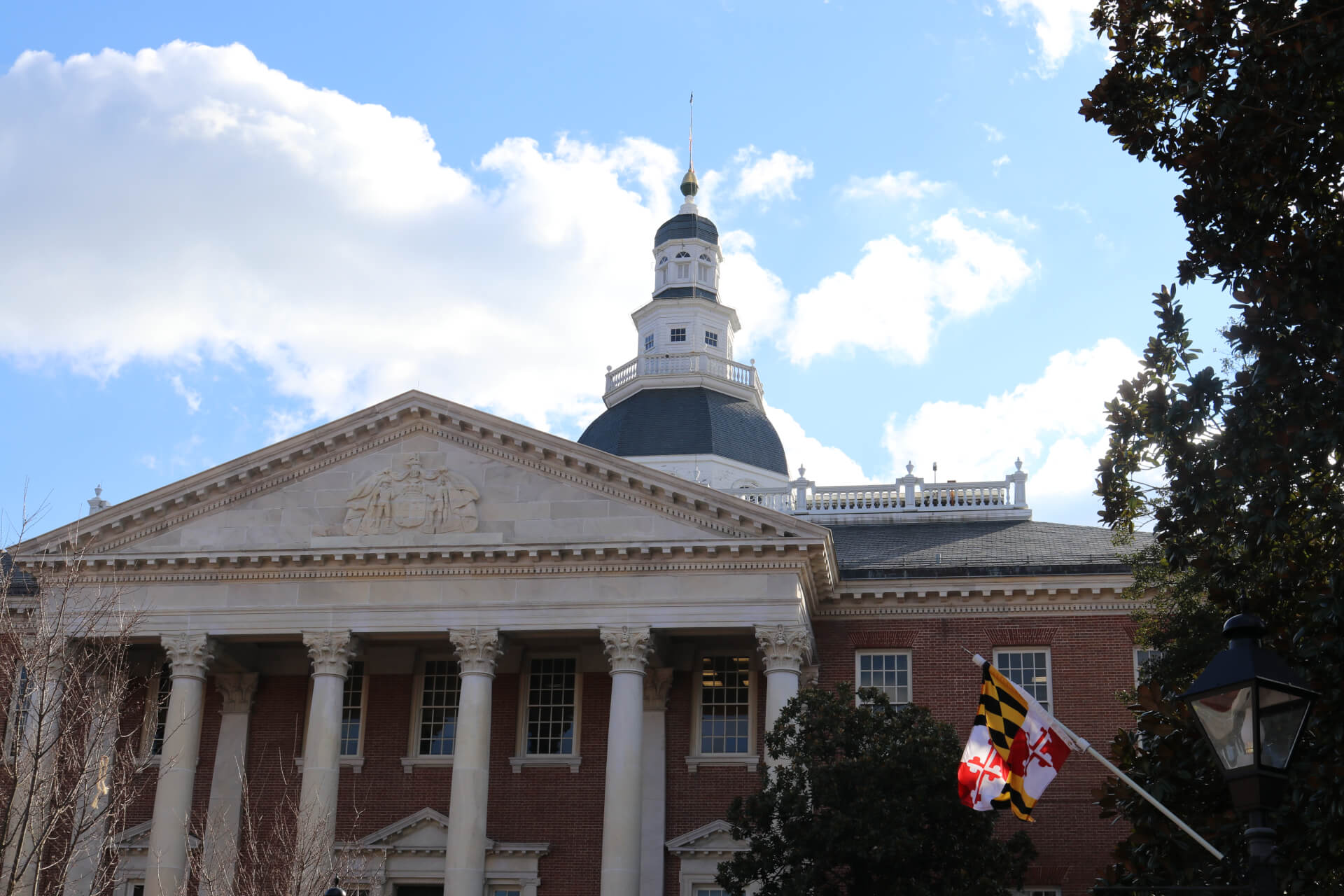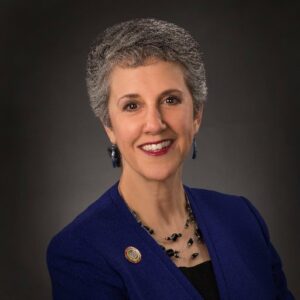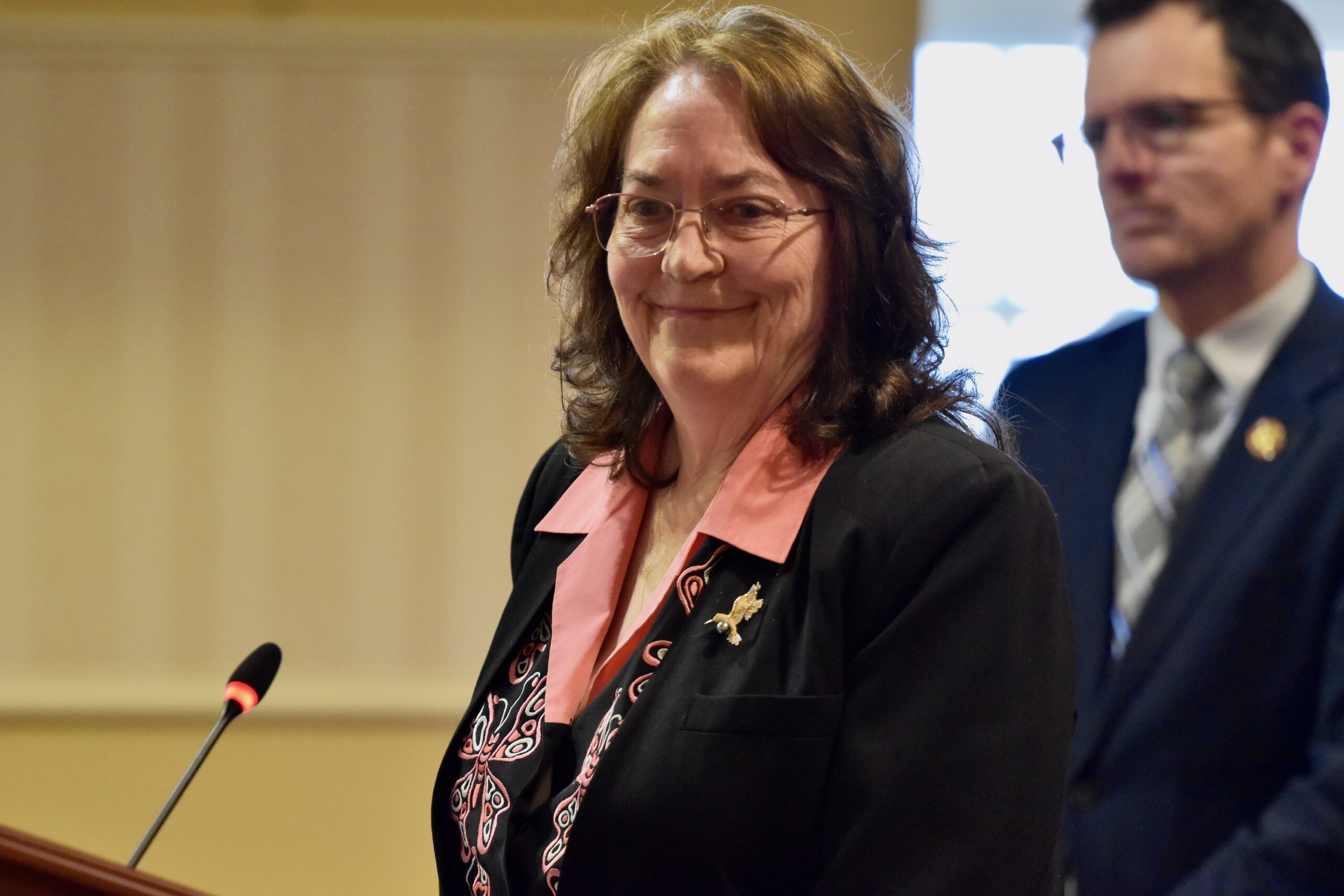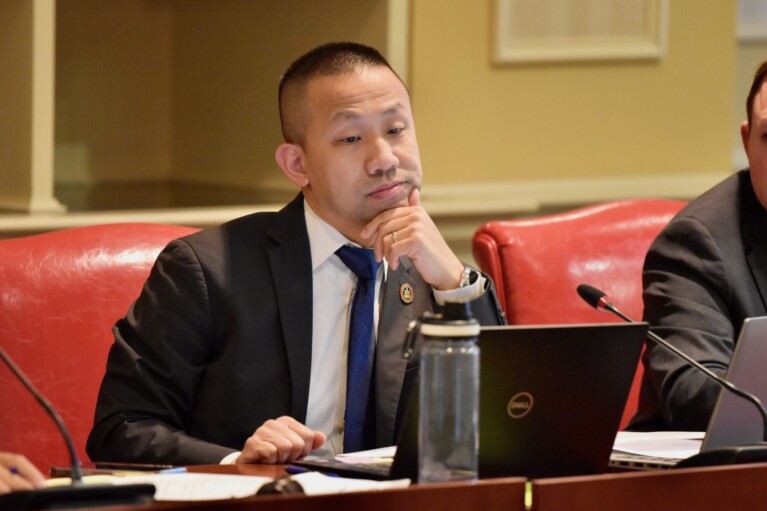Bill Would Require State Agencies, Local Boards of Elections To Live-Stream Meetings

After a lengthy battle to get the State Board of Elections to broadcast its meetings online, Sen. Cheryl C. Kagan (D-Montgomery) wants to require all executive branch agencies and local boards of elections to live-stream their meetings.
In addition to the live-streaming requirement, Kagan’s Senate Bill 72 would require those agencies to post all of their meeting materials and agendas online at least 48 hours before each open meeting, and allow public access to archived meeting recordings and minutes.
The bill, which is cross-filed in the House by Del. Marc Korman (D-Montgomery) allows state agencies and local boards of elections leeway in the event of emergencies and other “unanticipated situations,” according to a Department of Legislative Services analysis.
Longtime journalist Tom Sherwood described Maryland as a “backwater” in terms of government transparency in a Maryland Matters article last year. That article found that various state agencies, including the Open Meetings Compliance Board, either rarely or never live-streamed their meetings.
And even though a 2019 law required the State Board of Elections to live-stream its meetings, Kagan found that many of the board’s live-streamed meetings in early 2020 consisted of only often-garbled audio. Additionally, she said the board sometimes only posted their lengthy meeting materials just minutes before their meetings began.
Kagan wound up filing a complaint with the Open Meetings Compliance Board. She said the State Board of Elections acknowledged that they hadn’t complied with open meetings rules – but a loophole meant they weren’t under the compliance board’s jurisdiction.
She told Maryland Matters that the State Board of Elections has since “belatedly” become more transparent, but said at a Tuesday meeting of the Senate Education, Health and Environmental Affairs Committee that she wants other state agencies to follow suit.
“We’re trying to close some of the loopholes and make it clear that we need transparency and no games,” said Kagan, who is the vice-chair of that committee. The bill also clarifies compliance with and enforcement of the open meetings law.

Sen. Cheryl C. Kagan (D-Montgomery)
Several state agencies are already required to live-stream their open meetings and post agendas under current law. Those agencies include the State Board of Elections, Maryland Transportation Authority, Department of Public Safety and Correctional Services, Emergency Number Systems Board and the Public Service Commission.
The agencies are required to post meeting agendas generally 48 hours in advance, live-stream their meetings, post meeting minutes within two days of their approval and make archived meeting minutes and recordings available to the public. Kagan’s bill would generally extend those requirements to “any public body that is a state agency and local boards of elections,” according to the analysis of the bill.
Additionally, the state’s open meetings law requires that state and local public bodies “hold their meetings in public, to give the public adequate notice of those meetings, and to allow the public to inspect meetings minutes,” according to the Maryland Attorney General’s website.
Despite those open meetings laws, advocates say state agencies don’t have a uniform approach to posting meeting agendas or live-streaming their meetings. Eric Colchamiro, the government relations director for the Alzheimer’s Association’s Greater Maryland Chapter, described the current system as inconsistent.
“The end result of the current system for the open meetings is that transparency is not consistently happening, and our advocates do not have the opportunity to as consistently get involved as we would love for them to do,” he said.
Kagan said state agencies and local boards of elections’ meetings should be accessible online in “the same way they would if you wandered into a meeting room.” She emphasized that modern video streaming doesn’t mean hiring a professional editor, but rather just hosting the meeting on Zoom or live-streaming it to Facebook.
Nancy Soreng of the Maryland League of Women Voters said Kagan’s proposal “expands and improves upon” already-existing state laws.
“Democratic government depends upon informed and active participation of citizens,” Soreng said. “In order to do that, government bodies must protect a citizen’s right to know by giving adequate notice of meetings, by holding open meetings, and by making public records accessible.”
Some state agencies are concerned that the new requirements for transparency would be burdensome for their staff: Candace G. Robinson, the executive director of the state’s audiology board, said the bill would lengthen meetings and discourage members of the state’s medical boards to seek reappointment.
The pandemic forced many state and local agencies to live-stream their meetings for the first time. Maryland Matters previously reported that the Maryland Municipal League and the Maryland Association of Counties helped local governments quickly stand up new live-streaming capabilities.
As the pandemic has dragged on, live-streamed open meetings have become the norm. Kagan expects the demand for online public meetings to remain after the pandemic. In fact, she thinks the state should’ve adopted such measures for public meetings even before the pandemic.
“Nobody should have to drive down to Annapolis from Garrett county or Harford County, even before the pandemic, just to hear what the State Board of Elections is doing,” she said.
In a release, advocates from the League of Women Voters and Common Cause Maryland said they hope the Citizens Redistricting Commission, which will be appointed by Gov. Lawrence J. Hogan Jr. (R), will fall under the proposed transparency guidelines in the bill.
“The work of the Commission will impact every voter in the state and it should be done with transparency and allow for meaningful public participation,” Joanne Antoine, the executive director of Common Cause Maryland, said in the release.
Hogan issued an executive order last month establishing the commission and charging it with drawing legislative and congressional district boundaries for the 2022 election.




 Creative Commons Attribution
Creative Commons Attribution